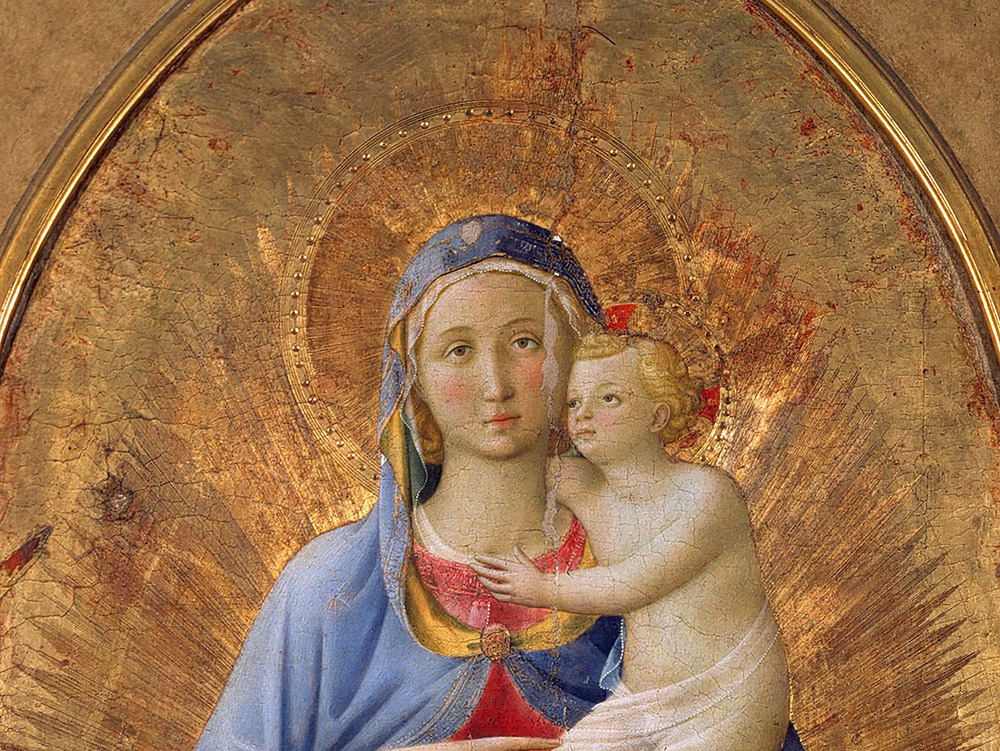Hearing of the doctrine of Mary’s virginity, we often are satisfied with an explanation of the miraculousness of Jesus’ conception. Yet the doctrine goes further than this mere fact, dealing with his birth and Mary’s state after the birth of Jesus. As the Catechism states: “The deepening of faith in the virginal motherhood led the Church to confess Mary’s real and perpetual virginity even in the act of giving birth to the Son of God made man” (No. 499). Thus the Church professes with absolute belief that Mary maintained her virginal integrity before, during and after the birth of Jesus.
When discussing such sensitive mysteries of faith, it is important to begin with humility and reverence toward the teaching. It can be easy to give way to questions of mechanics that become too personal and treads too far upon the holiness of the mystery of Jesus’ birth and Mary’s virginity. We can easily approach this question with very contemporary concerns, which, as valid as they might be, miss the heart of the doctrine that is vital for the life of the Church. Why, then, does the Church insist on it? There are two lessons to be gleaned: one is in reference to the fall, and thus to our salvation; the other is the connection between her role in the life of the Church.
Virginity and the Fall
We learn in Genesis that man and woman are commanded to multiply and fill the Earth (see 1:28). We also know that the fall of man brings about pain and suffering in childbirth (see Gen 3:16). The Bible’s first book reveals to us two facts here: that childbearing is part of God’s original plan, but that the fall has twisted this plan, and has had an effect on how childbearing takes place. The fathers of the Church talk about how procreation, while still a good, takes on a different reality because of the fall. It is clear from the biblical evidence that something changed in light of the fall, for the fall affected all of creation, including the body.
The virginity of Mary, then — because Mary is without sin — reveals something to us in her motherhood about what procreation and childbearing would have been like prior to the fall. This is still mysterious, and, looking at this through our own fallenness, we can struggle to see the reality clearly. But the perpetual virginity of Mary is meant to reveal something about why we were originally created. Since Mary is without sin, the effects of the fall do not affect her in the bearing of Jesus. Since her Immaculate Conception brings about her salvation, she is bearing in herself the effects of the Cross in time prior to its historical enacting. Mary is already redeemed in her conception, and so the effect of sin that affects all generations does not affect her. Her perpetual virginity is a sign of the victory of her Son and is a witness to the salvific efficacy of the Cross and Resurrection. Her virginity is the sign of the new creation, which is a fulfillment of the old represented in Adam and Eve. Thus, a new form of love is possible through Christ and embodied in Mary.
Mother of the Church
The doctrine of Mary’s perpetual virginity extends to her role and mission as regards the universal Church. By being the perpetual virgin — which is a sign of a universal love that is not exclusive but rather inclusive, Mary embraces the whole Church as her children just as she embraces her Son, of whose body we are members. The whole point of virginal love is to love with a full vision, to say that Christ’s way is the exclusive way by which life is to be lived. Mary’s perpetual virginity is a sign of our destiny where we are neither married nor given in marriage (cf Mt 22:30). Mary’s exclusivity makes her love universal, and is a sign of the universal love of Jesus to which she always says “yes.” By embracing her Son, she embraces the members of his Body, the Church. This perpetual virginity, therefore, points to her motherhood of the Church, as well as is a sign that she is always “giving birth” to Christ who is to be formed in us (see Gal 4:19). Her virginity is a constant openness to God in the Holy Spirit, a constant giving birth, and a constant love that cares for each one of us. Mary’s perpetual virginity is not a reduction of her sexuality, then, but is rather the fullest expression of love whereby she can love all people with an openness that has no limits.
Father Harrison Ayre is a priest of the Diocese of Victoria, British Columbia. Follow him on Twitter at @FrHarrison.

